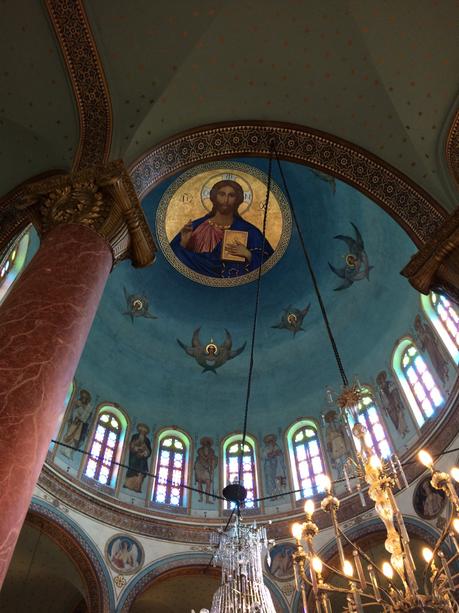
I speak up for refugees, immigrants, and Muslims on this blog. It's right that I do so. I see, read, and hear fear about all of these groups from a variety of people.
But today, I am speaking up for those from my own faith tradition who face persecution: Christians.
An organization called Open Doors releases an annual list that examines religious freedoms for Christians worldwide in five areas. The five areas are private, family, community, national and church.
Open Doors has been monitoring persecution for 25 years and claim that this past year, 2016, was the worst year yet for Christians. Indeed Islamic extremism, often a primary cause of persecution now has a rival: Ethnic nationalism.
"Persecution" is defined as hostility experienced as a result of identifying with Christ.
Here is the list of the top ten countries where it is most difficult to be a Christian:
It is critical to remember that this list is not about people being made fun of for their beliefs, or people feeling like they are not allowed to express political leanings. Many in the west erroneously believe that social media attacks on newsfeeds are "persecution." Reading the report on persecution is both important and sobering. It also reveals those newsfeed attacks to be exactly what they are: petty, childish demonstrations of anger and dislike of opinions, NOT persecution.
The persecution that these Christians face is real and it has been going on for many years. In fact, it shows no signs of stopping and is concerningly stable. I have highlighted a few significant findings.
- A total of 27 Christian leaders in Mexico and Colombia (23 in Mexico and four in Colombia) were killed for speaking out against drug lords.
- Pakistan rose to number four on the list, with great concern over the increase in violence.
- Ethnic nationalism is deeply concerning as a growing cause of persecution
- The most dangerous place in the world to be a Christian is North Korea. For 14 years, this country has topped the list.
There are many more important findings and you can access the full list here.
But all is not lost! The end of the article gives a beautiful picture of Middle Eastern Christians reclaiming their place.
1. Christians looking forward to going back to historic homes in northern IraqThe days of an Islamic State-run caliphate in Northern Iraq and Syria are numbered. Since an August 2016 offensive, the Islamic militants have been pushed back by a coalition of Iraqi and foreign-backed forces. Some of the towns and villages, such as Qaraqosh - which were once completely Christian - have been liberated. Iraq's second largest city - Mosul - will soon be in the hands of Iraqi forces. Over 80,000 Christians fled their homes in 2014 and have been refugees in Iraqi Kurdistan since. "We can't wait to go back," said one, in Erbil. "But we will go back with a greater determination to keep freedom defended."
2. 'Exodus' of Middle East Christians slows
Most Christians in the Middle East may have crossed a border within the region, but the majority have not yet left the region as a whole. The number of Christians exiting the region has slowed. Open Doors estimates the number of Christians in the Middle East and Turkey at currently 16.5 million, including migrant and expatriate Christians in the Gulf States.*
I will be honest. I am writing this while in complete comfort. I am at home in my living room and I'm slowly drinking a cup of coffee. I am far removed from the persecution and stress of so many who share my faith. How do I reconcile my reality with what I've read, what I've heard, and what I've occasionally seen?
I think the first thing I need to do is be honest about my own circumstances and have a clear view of what persecution is, honoring those who struggle and not seeing persecution when it's not there. The second thing I need to do is not shy away from the difficult. If it's a story that is difficult for me to read, how much more difficult must it be for those who go through it?
Next, I need to identify with those who are suffering through prayer and giving when and where I can. If that means giving of time and finances, then I need to move forward and give in those areas.
But lastly, perhaps the biggest thing I can do is seek to love God and my neighbor, to remain faithful where God has placed me, to seek to be worthy of identifying with those who lose all that this world offers, deciding that their faith was worth it all. Amen and Amen.
[Source: https://www.worldwatchmonitor.org/news/4812440/4812457/4837468%5D

